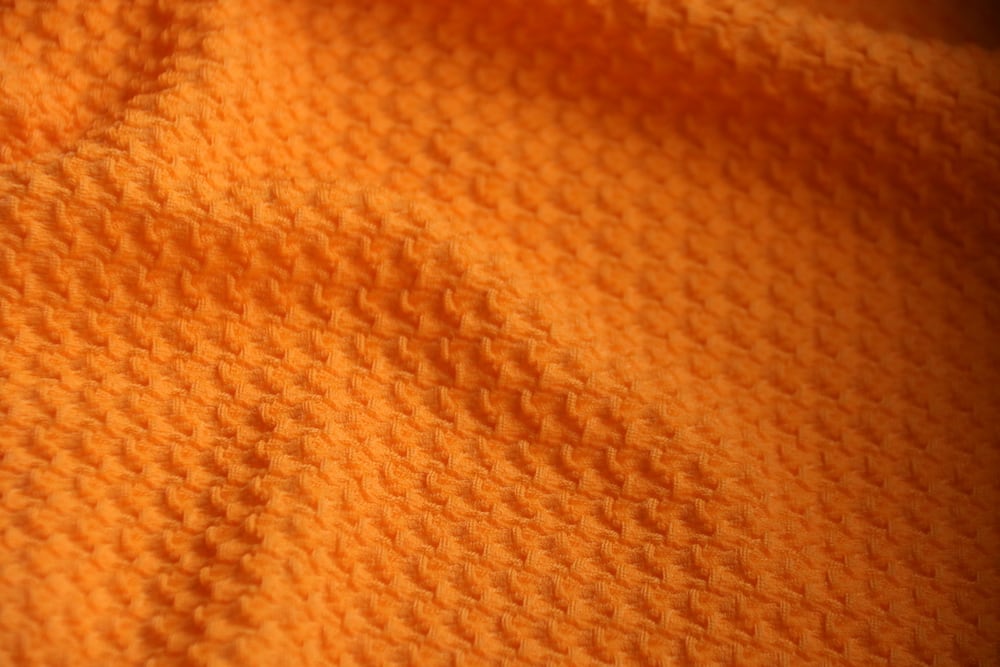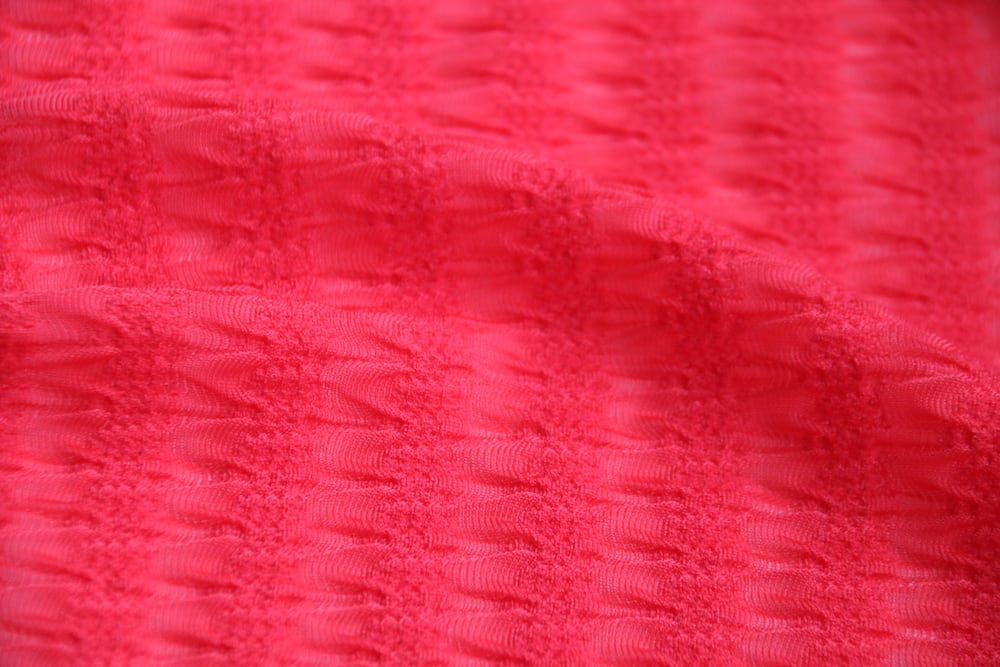Seersucker clothing is a hit every summer season. The fabrics look cool and can be worn without breaking into a sweat. This is thanks to slightly three-dimensional relieflike fabric sides.
The crepe-like surfaces ensure that the textiles do not lie directly on the skin, but are instead kept away from the body. This allows for ventilation and moisture balance.
What’s more, the relief-like structures mean the pieces do not need to be ironed after washing – and also give the fabric its name. The word seersucker originates from Persian and means shir o shekar: milk and sugar.
These fabrics that offer many advantages are traditionally produced on rapier looms. Thanks to a recent breakthrough by Melanie Bergmann, Textile Technology Product Developer at KARL MAYER, it is now possible to produce seersucker-effect fabrics on warp knitting machines.
To complete her work, the creative artist used a high-performance tricot machine – type HKS 4-M EL in E 28 – and a polyamide winding yarn with an elastane core. The gauge of the textured PU/PA yarn is dtex 110 f 24. “The material was tensioned in GB 1 and GB 2 and creates a great visual effect when relaxing,” explains Melanie Bergmann. The surface structure and elastic properties can both be changed by lapping the wrapping yarn differently.

The possibilities were explored when implementing various sample series at the end of last year. During further trials in March 2020, Melanie Bergmann also influenced the elasticity, as well as the flatness and the characteristics of the 3D effects using different threadings. These new fabrics with a versatile, moving surface design enable warp knitting companies to effectively expand their production repertoire.
KARL MAYER particularly sees potential for clothing and home textile manufacturers in Turkey. Warp knitting is generally highly efficient compared to many other surface forming processes and results in products that neither pull stitches nor fray at the edges. There are further examples in the pattern part of this issue.




















